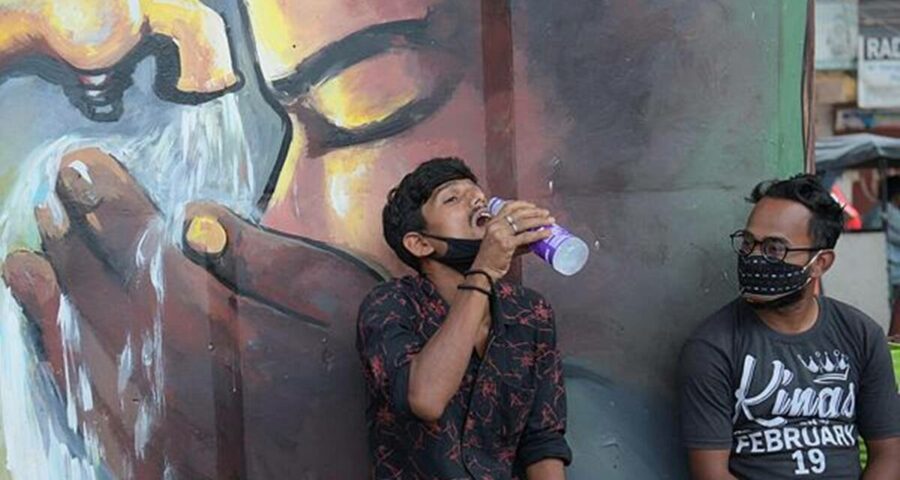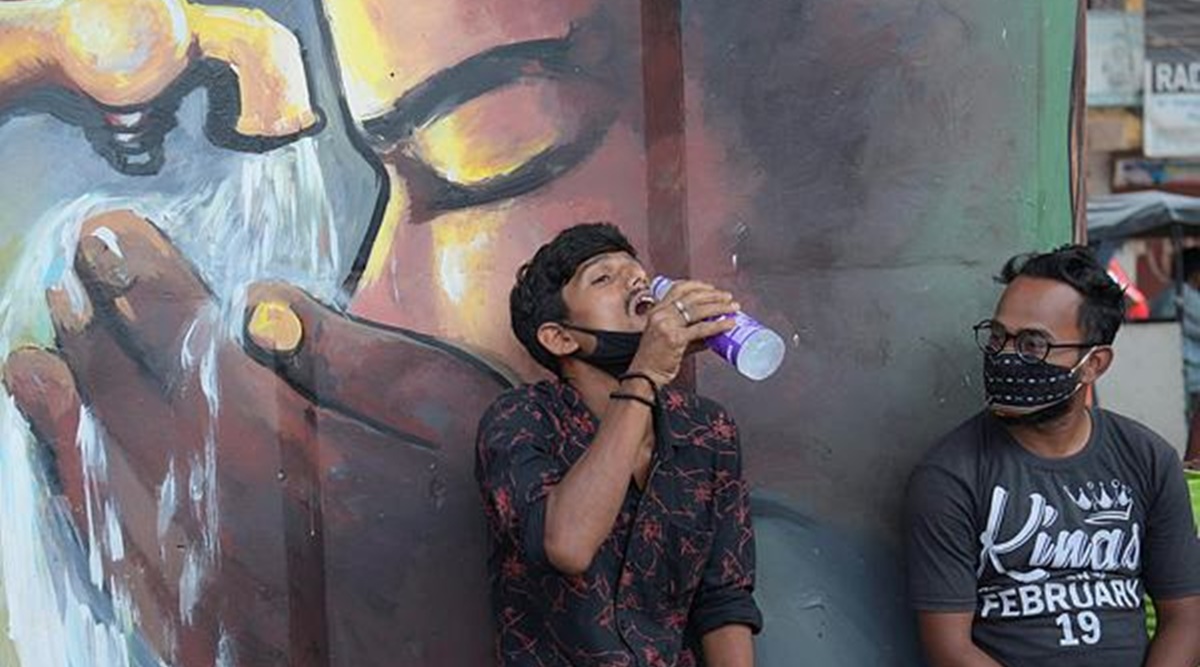People should consume plenty of fluids, such as coconut water, ORS, fruit juices, apart from liberally increasing their intake of water to stay well hydrated.
With rising temperatures, the most common problem to hit people is dehydration, especially those who work outdoors and indulge in manual labour. PARUL speaks to doctors to find out about how to guard yourself against the heat and prevent behind dehydrated, which can be dangerous.
“Dehydration, diarrhoea, urinary tract infections are common problems”: Dr Vikas Bhutani, Director Internal Medicine, Fortis Hospital
Dehydration can manifest in different ways, ranging from giddiness to exhaustion and abdominal discomfort. Severe dehydration often manifests as hypovolemic shock, requiring hospitalisation. Elderly people can even have alteration in sensorium due to fluid deficit in the body due to dehydration.
Urinary tract infection is another common problem that affects children and adults alike, again due to dehydration and not replenishing the body with adequate fluids. Diarrhoea is a disease that peaks during summer due to people sometimes resorting to unclean sources of water to quench their thirst.
Heatstroke is a condition caused by your body overheating, usually as a result of prolonged exposure to or physical exertion in high temperatures. This most serious form of heat injury, heatstroke, can occur if the body temperature rises to 104 degrees F (40 degrees C) or higher.
Heatstroke signs and symptoms include high body temperature, altered mental state or behaviour, alteration in sweating, nausea and vomiting, flushed skin, rapid breathing, increased heart rate, and headache. Heatstroke requires immediate treatment and if untreated can quickly damage the brain, heart, kidneys and muscles. The damage worsens the longer treatment is delayed, increasing the risk of serious complications or death.
People should consume plenty of fluids, such as coconut water, ORS, fruit juices, apart from liberally increasing their intake of water to stay well hydrated. Even water-filled fruits, such as melons and watermelons, should be taken to maintain proper hydration. Avoid standing or working for long in extreme heat conditions and keeping your body cool at all times during a heatwave also helps.
“Beat the heat with cool, hydrating foods”: Dr Nancy Sahni, Senior Dietician. PGI
Long summer months often lead to various health issues of food-borne infections, dehydration and heat strokes which can lead to serious consequences. Our eating habits during these months can help us keep healthy and active. The days before monsoons are dry and hot and can lead to a heat stroke, with the elderly, children, sportspersons and people with compromised nutritional status being more vulnerable.
The mantra is simple, stay hydrated. Approximately, three to four litres of fluid per day at frequent intervals in form of water, lemon water, iced tea, fresh juice, coconut water, buttermilk should be consumed. The best is to have any of the above fluids during your snack time—mid-morning and evening. One can make ‘shardai’, ‘thandaai’ (made from blanched almonds and ‘magaz’ — dried melon seeds). Tea/coffee should be avoided as far as possible, as caffeine and alcohol dehydrate the body.
Remember to have a glass of water before going out in the sun to prevent having a heat stroke. Sportspeople must keep a bottle of water with them and put lemon, salt and sugar in it for electrolyte and energy replenishment. Remember that clean drinking water is the basic necessity to avoid summer diarrhoea.
Nature has bestowed summer months with fruits and vegetables which are full of water/moisture. Be it watermelons, musk melons, plums, mangoes, refreshing litchi, sehtoot, all are summer-friendly fruits. Even vegetables like cucumber and various types of gourds are light on the stomach and full of moisture content. The best remedy is to eat seasonal, locally produced foods. Eat fruits as snacks and avoid oily snacks, bakery and processed items which tend to increase the body heat and may lead to digestive problems.
Excess protein intake demands more water, the absence of which may lead to dehydration. Keep your food balanced, nutritious, hydrational, seasonal, mildly spiced and flavour it with herbs like mint, coriander, lemongrass etc. A few functional foods, like gond katira, which is derived from the sap of a thorny and low-growing tree tragacanth, helps to beat the body heat.
Its peculiar name is derived from gond, which means gum. Curd and gond katira mixed together as a smoothie, with some fruits thrown in, is a super coolant in dry, summer months. ‘Sabza — sweet basil seeds — have a soothing and cooling effect on the stomach lining. Soak the seeds overnight and add them to your milkshake, lassi.
Source: Read Full Article


